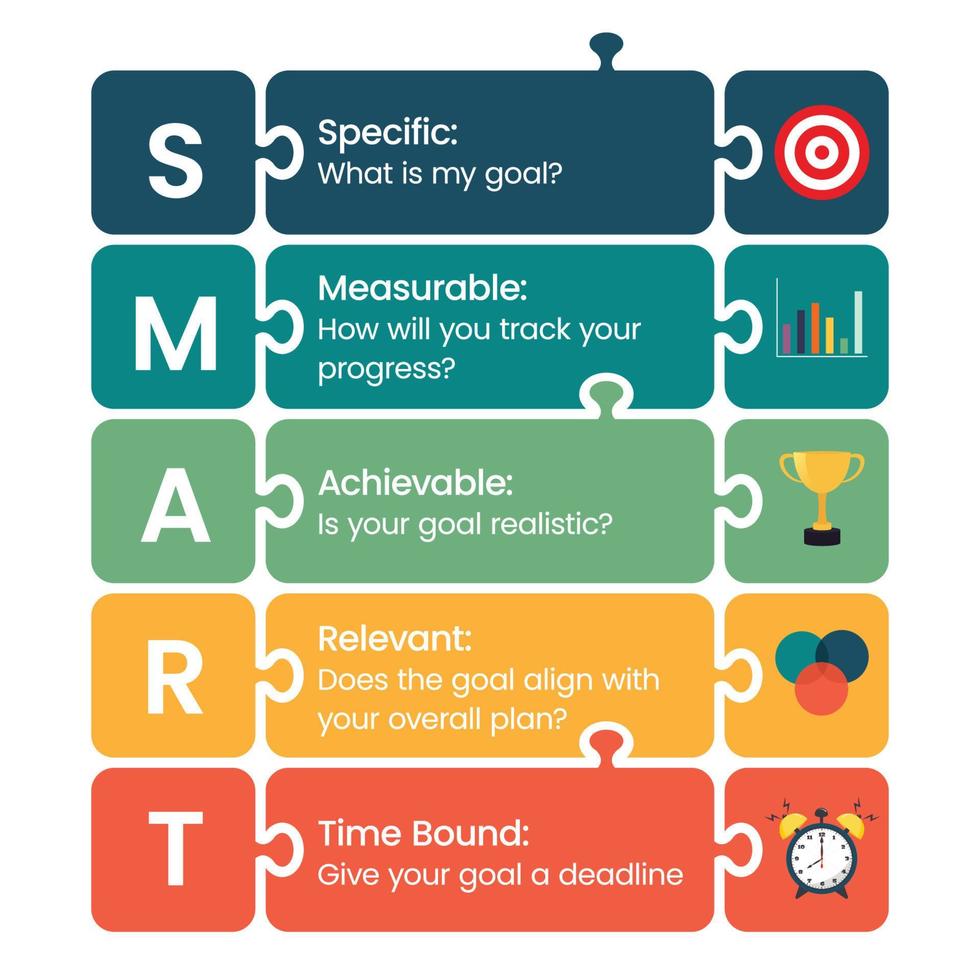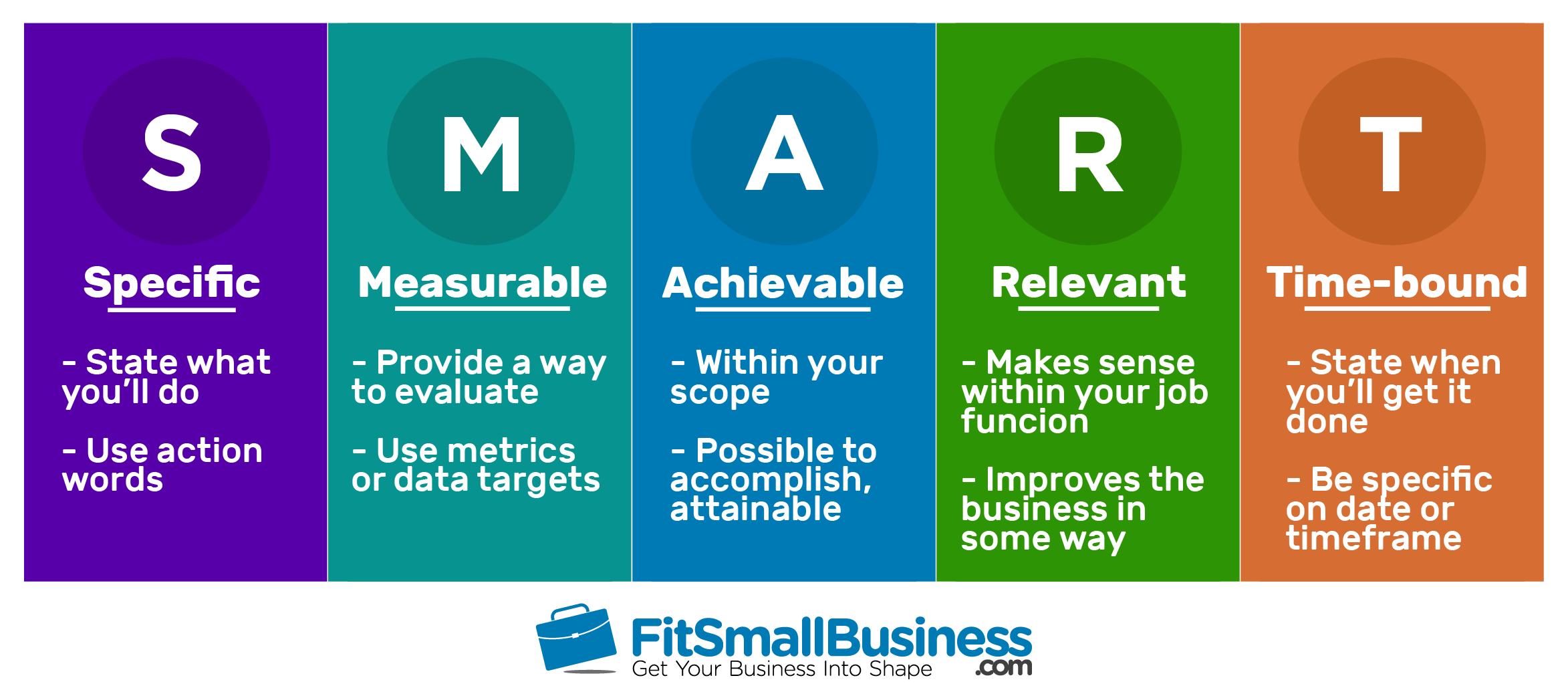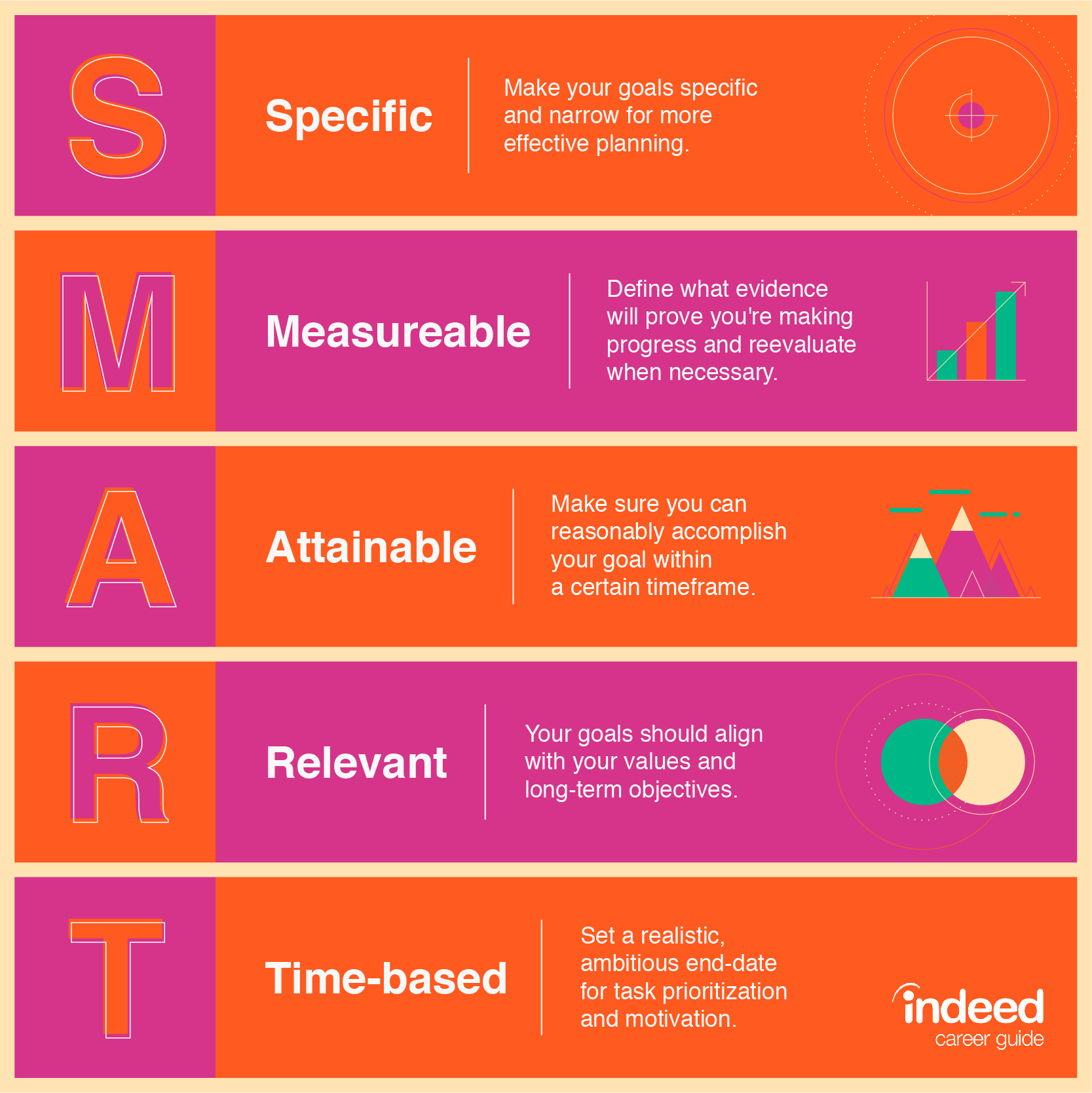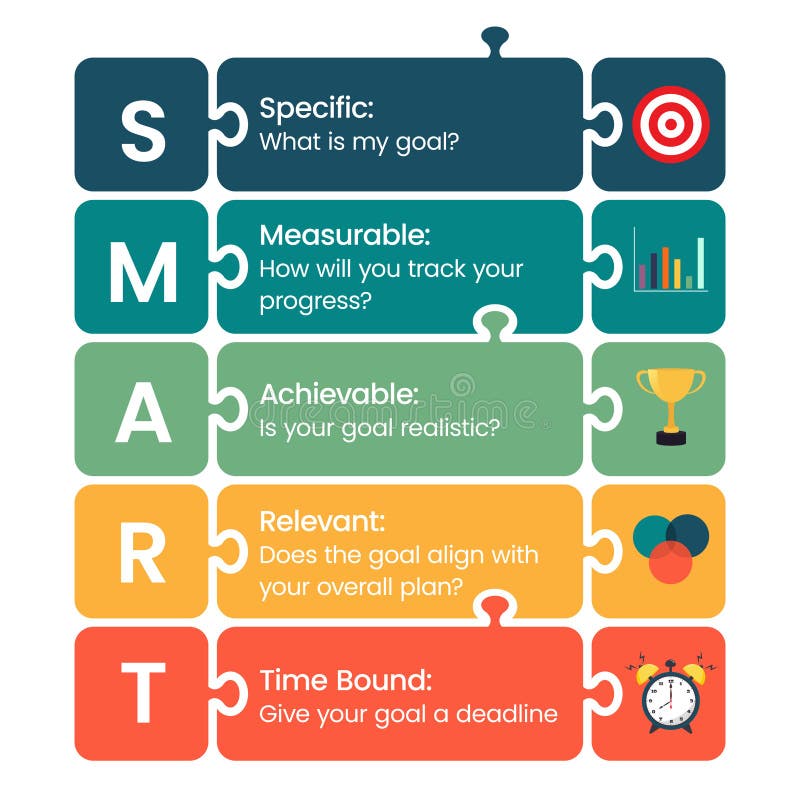Smart Goal Presentation
| Introduction to SMART Goals | ||
|---|---|---|
| SMART goals are a framework for setting objectives that are Specific, Measurable, Achievable, Relevant, and Time-bound. SMART goals provide clarity, focus, and a roadmap for success. By following the SMART goal framework, individuals and organizations can increase their chances of achieving desired outcomes. | ||
| 1 | ||
| Specific | ||
|---|---|---|
| Specific goals clearly define what needs to be accomplished. Specific goals answer the questions: Who? What? Where? When? Why? Example: Instead of setting a goal to "lose weight," a specific goal would be "lose 10 pounds in 3 months by exercising 3 times a week and following a balanced diet." | ||
| 2 | ||
| Measurable | ||
|---|---|---|
| Measurable goals have criteria to track progress and determine success. Measurable goals answer the questions: How much? How many? How will I know when it is accomplished? Example: Instead of setting a goal to "increase sales," a measurable goal would be "increase sales by 10% in the next quarter." | ||
| 3 | ||
| Achievable | ||
|---|---|---|
| Achievable goals are realistic and attainable. Achievable goals take into consideration available resources, skills, and time. Example: Instead of setting a goal to "become a world-class pianist in one year," an achievable goal would be "practice piano for 1 hour every day and participate in local music competitions within one year." | ||
| 4 | ||
| Relevant | ||
|---|---|---|
| Relevant goals align with individual or organizational priorities, values, and long-term objectives. Relevant goals answer the question: Is this goal worthwhile and will it contribute to overall success? Example: Instead of setting a goal to "learn a new language," a relevant goal would be "learn Spanish to enhance communication skills and expand business opportunities in the Latin American market." | ||
| 5 | ||
| Time-bound | ||
|---|---|---|
| Time-bound goals have a specific deadline or timeframe for completion. Time-bound goals create a sense of urgency and help prioritize tasks. Example: Instead of setting a goal to "write a book," a time-bound goal would be "complete the first draft of a book within 6 months by writing for 1 hour every day." | ||
| 6 | ||
| Summary of SMART Goals | ||
|---|---|---|
| SMART goals are Specific, Measurable, Achievable, Relevant, and Time-bound. SMART goals provide a clear roadmap for success. By following the SMART goal framework, individuals and organizations can increase their chances of achieving desired outcomes. | ||
| 7 | ||
| References (download PPTX file for details) | ||
|---|---|---|
| [Insert references here]... Your second bullet... Your third bullet... |  | |
| 8 | ||





